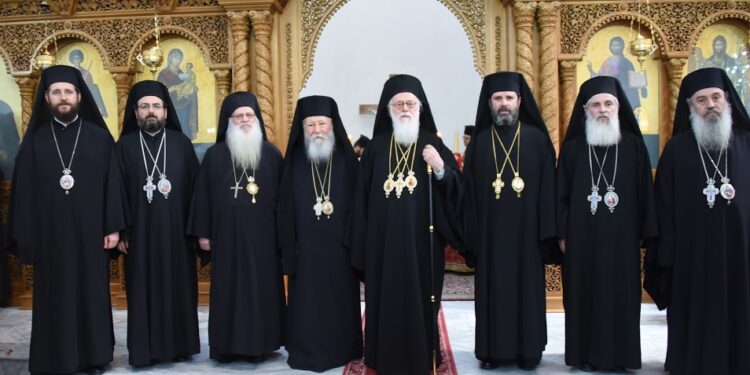By Fr. Elias Makos
The Church of Albania’s reaction to the recently announced results of the 2023 census in Albania is justified and intense. The number of Orthodox Christians reported in the census is deemed to be inaccurate and not reflective of the actual numbers. It has been stated that the census results do not truly represent the reality of the situation.
Several reasons have been provided to explain this discrepancy:
Many census takers did not inquire about respondents’ religious beliefs, leading to a significant undercount of believers. Evidence suggests that a large number of Orthodox Christians were not included in the census due to the absence of a census taker. Additionally, a substantial number of individuals chose not to disclose their religious affiliation or were unavailable during the census, further casting doubt on the accuracy of the results.
Based on baptism records maintained by the Orthodox Church, it is evident that the actual number of Orthodox Christians is much higher than indicated in the census. Historical statistics dating back to 1927 show that Orthodox Christians constituted a significant portion of the population alongside Muslims and Catholics.
PLANNED REDUCTION
The reduction in the reported number of Orthodox Christians in the 2023 census appears to be a deliberate effort to underestimate their true presence. Despite a documented increase in the Orthodox Christian population since the previous census in 2011, the reported figures do not reflect this growth accurately.
It is important to note that the Orthodox Christian community in Albania is not solely composed of individuals of Greek descent but also includes a significant number of Albanians and individuals from diverse backgrounds.
The 2023 census results concerning religious beliefs are as follows:
Muslims: 1,101,718. Bektashi Muslims: 115,644. Catholics: 201,530. Orthodox Christians: 173,645. Evangelicals: 9,658. Other faiths: 3,670. Undefined: 332,155. Atheists: 85,311. Did not answer: 244,331.
Comparing these figures to previous censuses reveals a consistent pattern of underrepresentation of Orthodox Christians. Despite the church’s own data indicating a higher percentage of Orthodox Christians in the population, the census results do not align with these findings.
Various obstacles during the census process, such as the optional nature of the question about religious affiliation and the ambiguity surrounding the term “practically” Orthodox, have contributed to the inaccurate reporting of religious demographics. The subjective nature of faith and religious practice makes it challenging to capture the true extent of Orthodox Christian presence in Albania.
Historical references to past censuses and international comparisons further highlight the discrepancies in the reported numbers. The Orthodox Christian community in Albania has historically constituted a significant portion of the population, a fact that is not adequately reflected in the recent census results.
Translation by Ioanna Georgakopoulou

